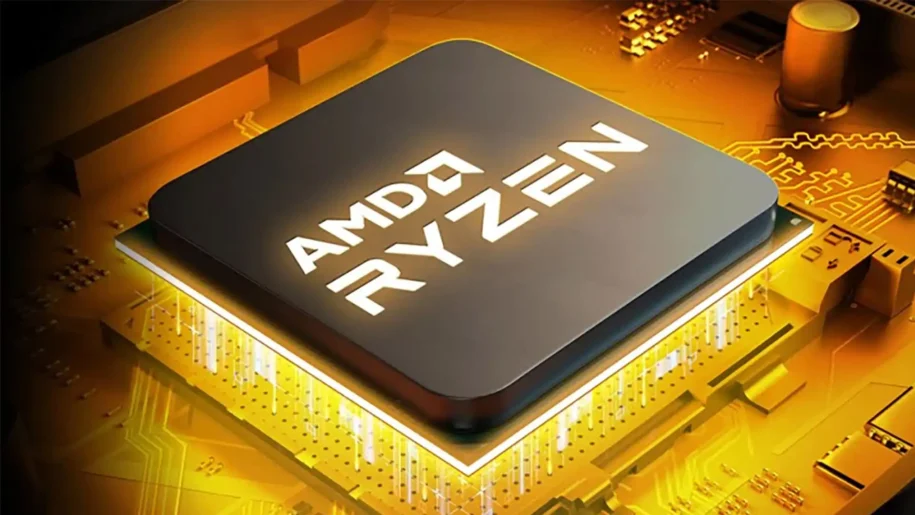
AMD Ryzen CPU’s combine impressive core counts with solid performance resulting in great all round CPUs that provide great gaming performance. Ryzen CPUs are unlocked, which means you can overclock them with eaze! Let’s take a look at how to boost AMD CPU’s performance
Overclocking is the main way how we are going to squeeze some more performance out of your CPU. These days overclocking is fairly straightforward and easy to do, but if you don’t have experience with computers it can seem a daunting task. Be cautious, go slowly, and you will be just fine.
The amount of overclocking headroom will vary between models of Ryzen processors. So, before you even begin you should do some research into what model processor you have and what sort of performance gains you can expect from overclocking.
Once you are ready to see how far you can push your processor , all it takes is a few tweaks in your computer’s BIOS. Let’s dive in to how to access your BIOS and begin overclocking your AMD processor.
Besides overclocking, there are several ways to improve its performance and enhance your overall gaming experience. Let’s take a look at each way you can squeeze more out of your AMD CPU
Table of Contents
1. Keep Your CPU Cool
One of the biggest factors that affect your AMD CPU’s performance is temperature. Overheating can cause your processor to throttle, reducing performance and potentially shortening its lifespan. Keeping your CPU cool is essential, especially during intensive gaming sessions. Here are a few ways to ensure optimal cooling:
- Upgrade your CPU cooler: If you’re using a stock cooler maybe think twice about overclocking. In fact you should really consider upgrading to a more powerful air cooler or, better yet, an all-in-one (AIO) liquid cooler. Improved cooling will help dissipate heat more effectively.
- Improve airflow in your case: Ensure your case has good airflow by adding extra case fans if needed. Proper airflow prevents hot air from accumulating inside your PC, keeping your CPU cooler.
- Clean your PC regularly: Dust buildup can block airflow and increase temperatures. Regularly clean your PC’s fans, filters, and heat sinks to maintain efficient cooling.
2. Enable AMD Precision Boost Overdrive
AMD processors come equipped with Precision Boost technology, which dynamically increases clock speeds to improve performance based on the workload. It automatically boosts your CPU’s clock speed when needed, such as during gaming or heavy multitasking. To ensure Precision Boost is working at its best:
- Update your BIOS: Manufacturers often release BIOS updates that improve CPU performance and support for Precision Boost. Check your motherboard manufacturer’s website for the latest version.
- Enable Precision Boost Overdrive (PBO) in BIOS: Make sure PBO is turned on in your BIOS settings. It’s typically enabled by default, but double-check to ensure you’re getting the maximum performance boost.
3. Overclock Your CPU
If you’re looking for more significant performance gains, overclocking your AMD CPU can push it beyond its stock speeds. However, overclocking comes with risks, such as increased heat and potential instability, so it’s important to approach this carefully.
- Use AMD Ryzen Master: AMD offers the Ryzen Master utility, which makes overclocking more accessible by allowing you to tweak your CPU settings from within Windows. It also provides real-time monitoring of temperatures, voltages, and clock speeds.
- Or Overclock Directly From The BIOS:
- Stress test your system: After overclocking, run stress tests using tools like Prime95 or Cinebench to ensure stability. Monitor your CPU temperatures during the test to avoid overheating.
- Don’t push it too far: Overclocking can increase performance, but pushing your CPU too far can result in crashes or even hardware damage. Increase your clock speed gradually and monitor performance closely.
4. Optimize Windows Settings
Tweaking your operating system settings can also help boost your AMD CPU’s performance. There are several options in Windows that can help your CPU focus its resources on gaming.
- Adjust power settings: Go to “Power & Sleep Settings” in Windows and set your power plan to “High Performance.” This ensures your CPU is running at its full potential during gaming sessions.
- Disable unnecessary background apps: Open the Task Manager and identify any background apps that are using CPU resources. Disable or close apps that you don’t need while gaming to free up CPU power for your games.
- Disable Windows Game Mode: Surprisingly, Windows Game Mode can sometimes negatively impact gaming performance, especially with high-end hardware. Try disabling Game Mode in the settings to see if it improves your FPS.
5. Update Your Drivers
Keeping your system drivers up to date is essential for maximizing performance. AMD frequently releases updates that optimize CPU performance and fix bugs.
- Update your chipset drivers: AMD’s chipset drivers contain optimizations that help your CPU work more efficiently. Check AMD’s official website for the latest chipset driver updates.
Improving your AMD CPU’s performance doesn’t require extensive technical expertise—just a few tweaks and optimizations. By keeping your CPU cool, utilizing AMD Precision Boost Overdrive or carefully overclocking manually in your BIOS, optimizing Windows settings, and keeping your drivers updated, you can enhance the gaming performance of your already excellent AMD Ryzen processor. Enjoy smoother gameplay, and just better overall system responsiveness by following these tips.
For the latest AMD Ryzen powered custom gaming PCs, check out our Ryzen 9000 series gaming desktops here.